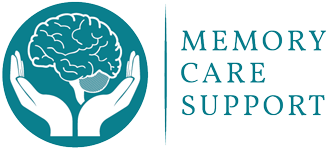
Public awareness of Alzheimer’s and other dementias has increased fears for us as we age. According to a study by Met Life, for people over 55 years old, Alzheimer’s was the most dreaded condition after cancer.
As fears rise about developing dementia, so does the number of products that are touted as preventing it. Diets, supplements and brain stimulation games all promise to prevent or delay the start of dementia.
Some of the diets are a bit bizarre – Dr. Oz’s website includes information about “superfoods you must include in your diet to prevent Alzheimer’s and boost your memory” – his recommendations include foods such as chicken giblets, clams, and elderberries as necessities to prevent Alzheimer’s……
It is predicted the anti-Alzheimer’s product industry will follow in the footsteps of the multibillion dollar anti-aging, anti-wrinkle industry. And as we know, most of the anti-aging products are not worth the money we spend on them.
Along with supplements and diets, there are many electronic game-type products which promise to stimulate our brains and delay cognitive decline. One of my personal favorites (a great way to kill time while waiting at airports…) is Lumosity. However this “brain training” company has recently agreed to pay 2 million dollars to settle Federal Trade Commission charges that they deceived consumers with unfounded claims that the company’s web-based games can reduce or delay cognitive impairment associated with age and other health conditions.
The quote from the FTC is very telling…. “Lumosity preyed on consumers’ fears about age-related cognitive decline, suggesting their games could stave off memory loss, dementia and even Alzheimer’s disease. But Lumosity simply did not have the science to back up its ads.”
All of us should remember that in the world of diets, supplements and computer games, the strength of evidence does not have to be much! There are not rigorous scientific trials testing the outcomes and manufacturers can make unfounded claims of their products. And yes, we’re all fearful of developing Alzheimer’s or other dementing illness.
Maybe someday there will be specific prescriptions to prevent these conditions but unfortunately, not right now. But science is giving us clues – with over 75% of dementias not linked to genetic causes, it makes sense that there are lifestyle choices we can make to help keep our brains healthy.
We know that some health conditions such as obesity, inactivity, diabetes, high blood pressure can all increase our risk of dementia and there are many choices we can make to lower our incidence of these conditions.
Like many other health conditions, it would be easier if we could just “take a pill” and not have to do any hard work ourselves but decades of research in heart health and cancer research validates that the most powerful intervention we can do to keep ourselves healthy often lies in our own lifestyle choices.
And guess what? Research also shows us that our body organs and systems do not exist in “silos” but all interact and influence each other. So what is healthy for our heart will be healthy for our brains.
Here’s what we know about strategies to reduce our risk of cognitive decline:
1. Physical exercise is good for our brains. In one long-term study of 18,000 female nurses, those who were most physically active appeared to stay cognitively intact up to 3 years longer than those who were inactive.
2. Don’t smoke…goes without saying…
3. Take up new cognitive challenges. Strategy games such as chess and scrabble, solving puzzles, learning a new language or musical instrument, taking classes, writing poetry, are just a few examples of activities we can start. Go wild – choose something new and interesting to you! In a randomized trial with over 2,000 older adults, those who received ten 60-75 minute brain training sessions showed benefits for several years.
4. Avoid or control health conditions such as diabetes, obesity, hypertension and high cholesterol.
5. Eat a healthy diet patterned after the Mediterranean, MIND or DASH diets. For more information on healthy diets, see my blog from Sept. 2015.
None of the above recommendations involve buying expensive equipment, games or supplements… Maybe instead of spending $50/month on vitamins and supplements, use it to take guitar lessons or learn to tango – now that sounds like fun!
Contact Memory Care Support, LLC to assess your Memory Care program and work with your team to create an environment that is purpose-driven and resident focused.


